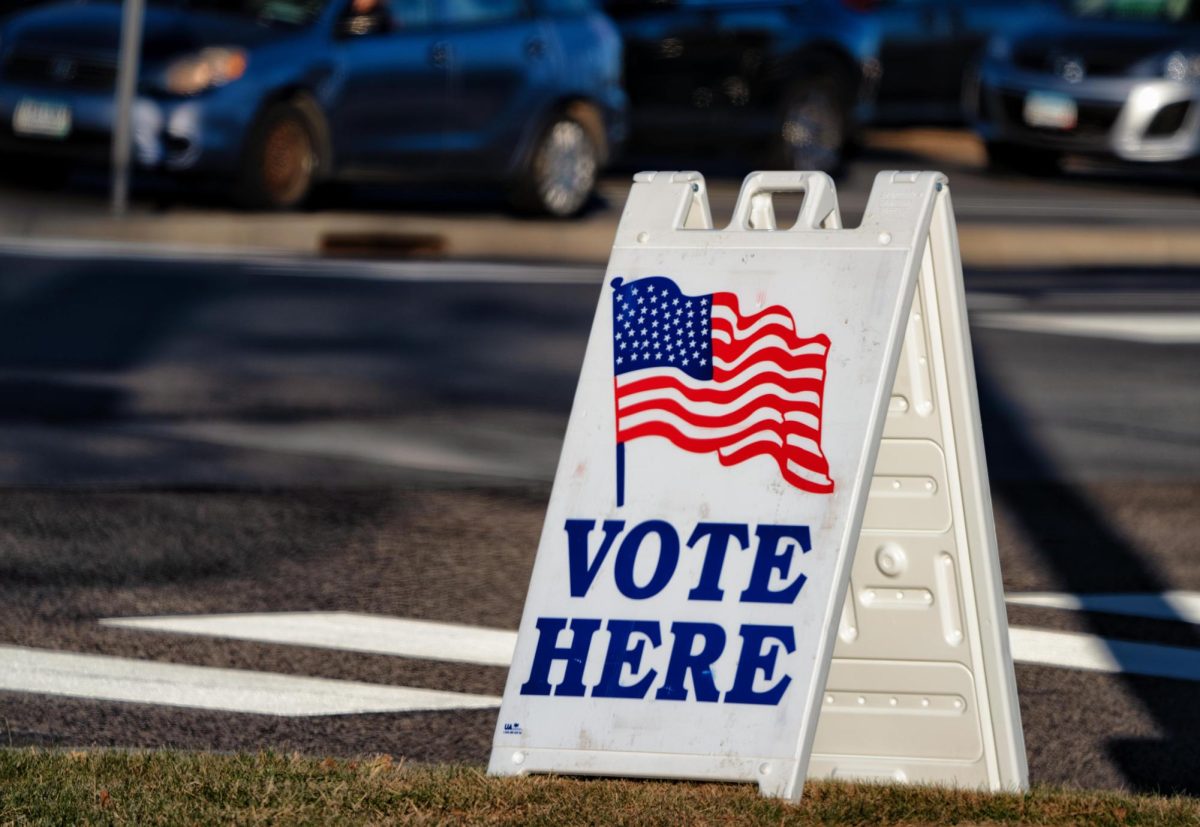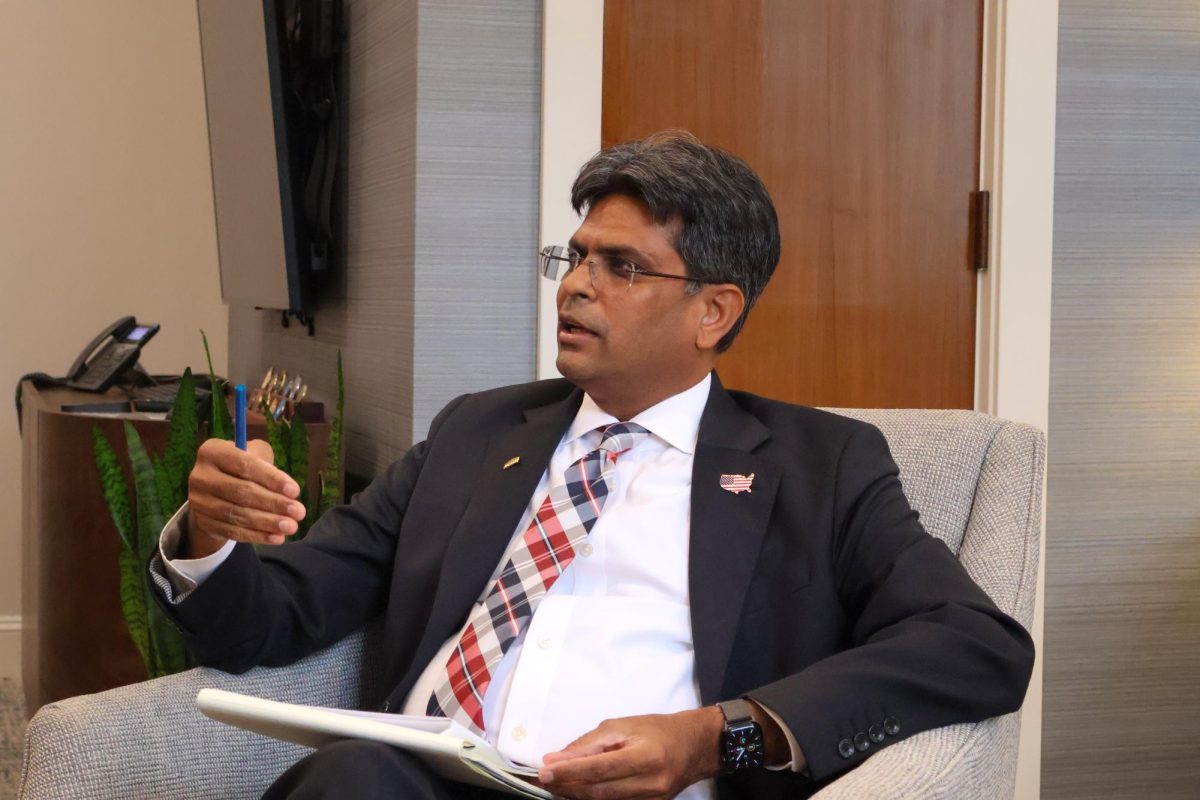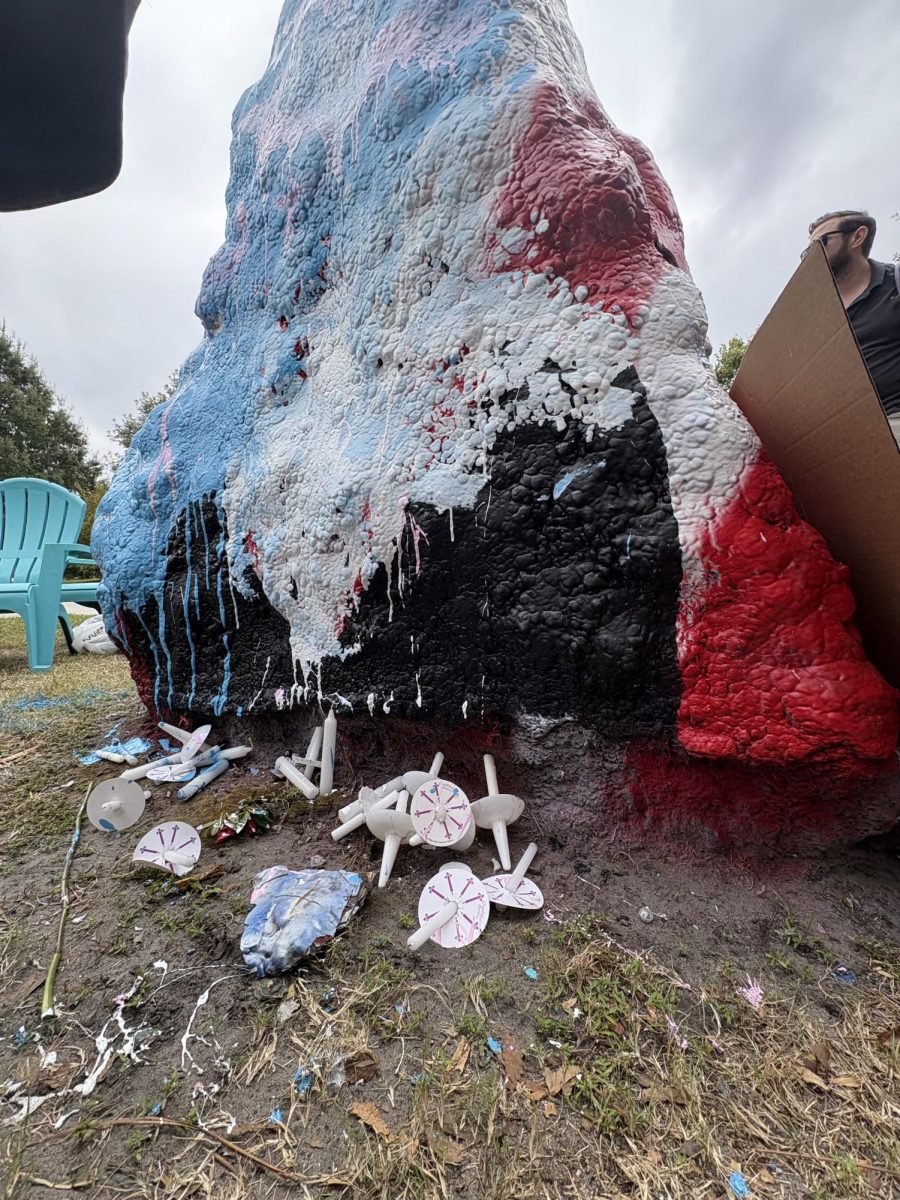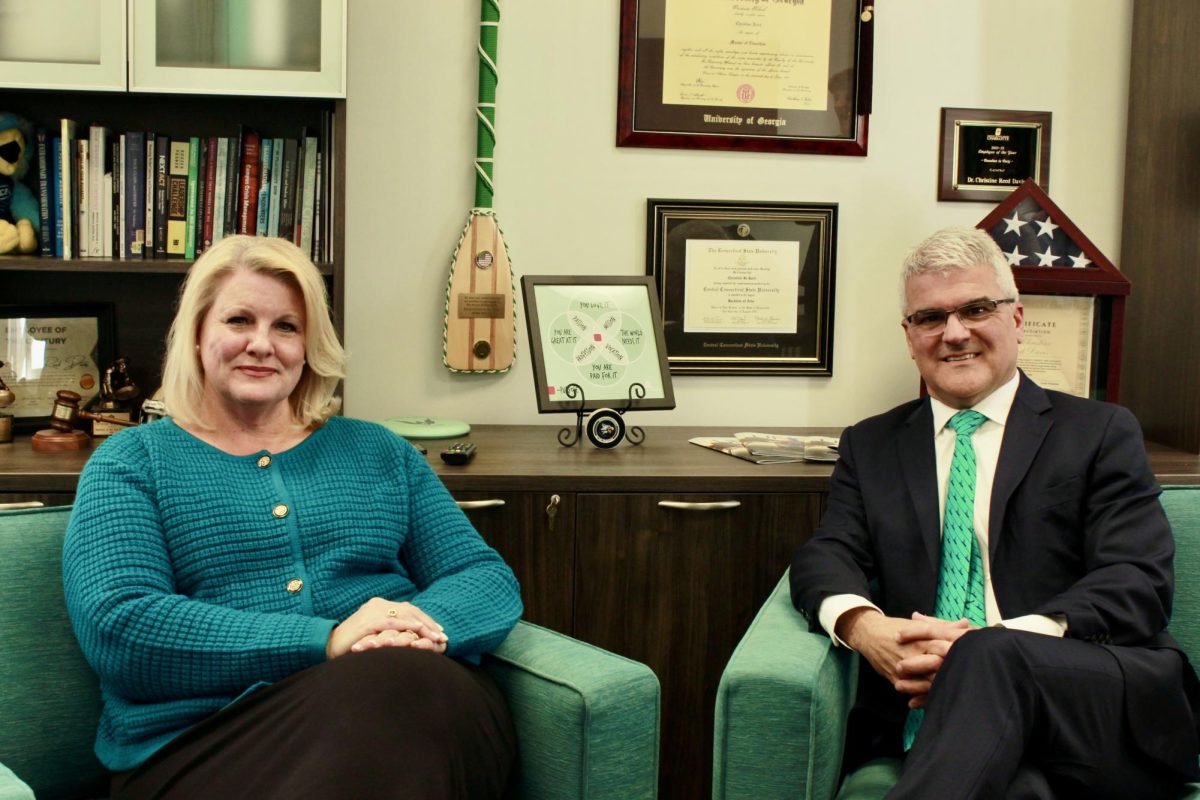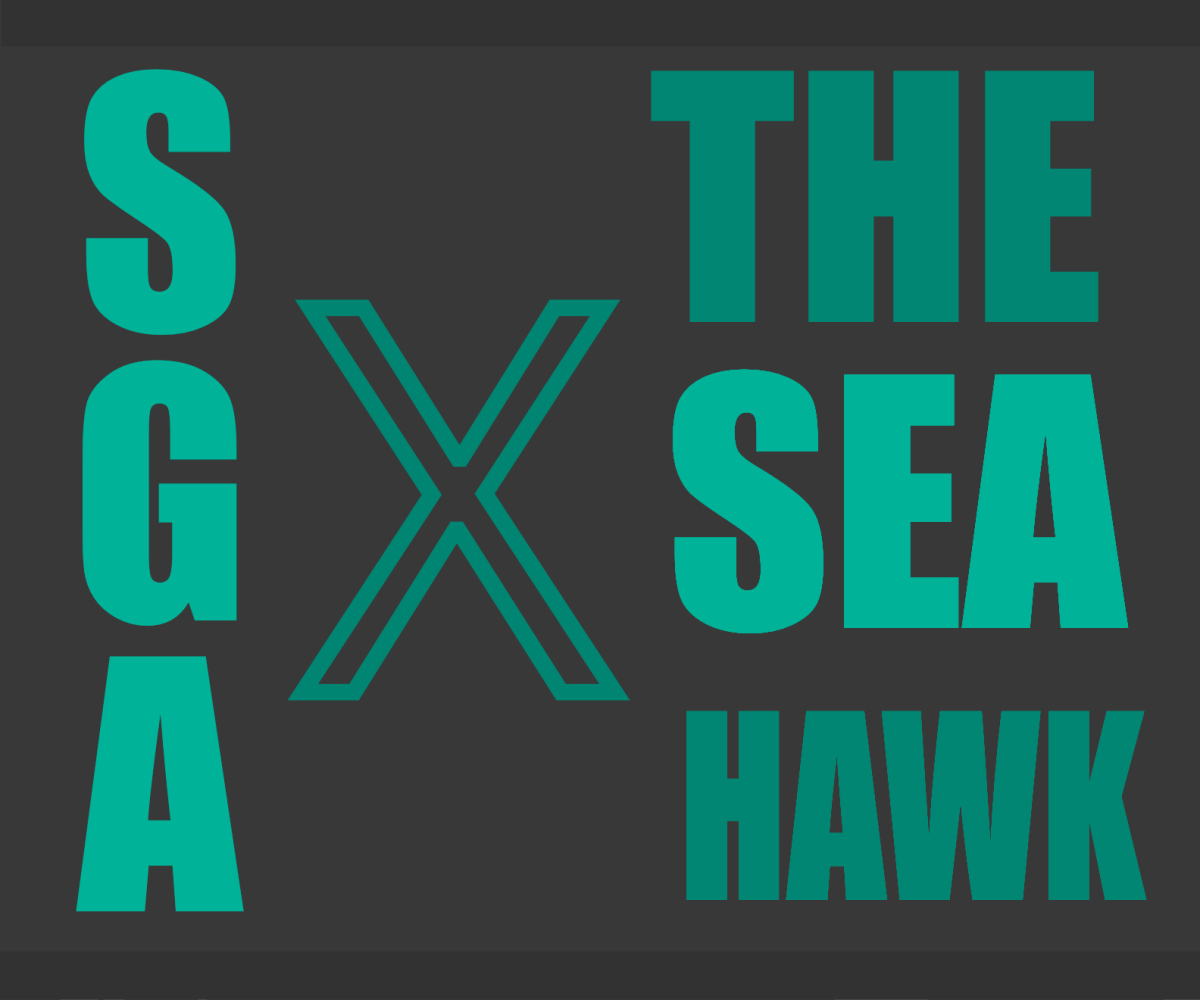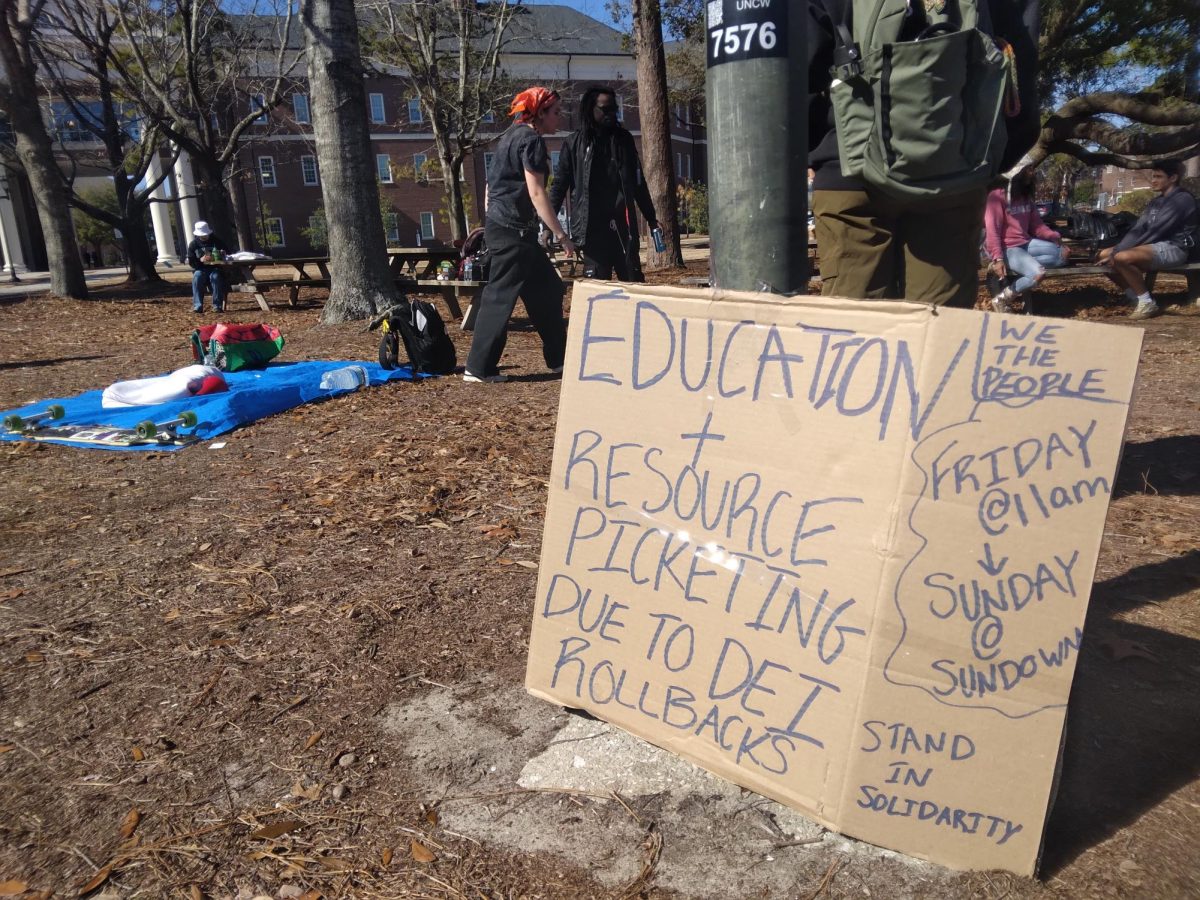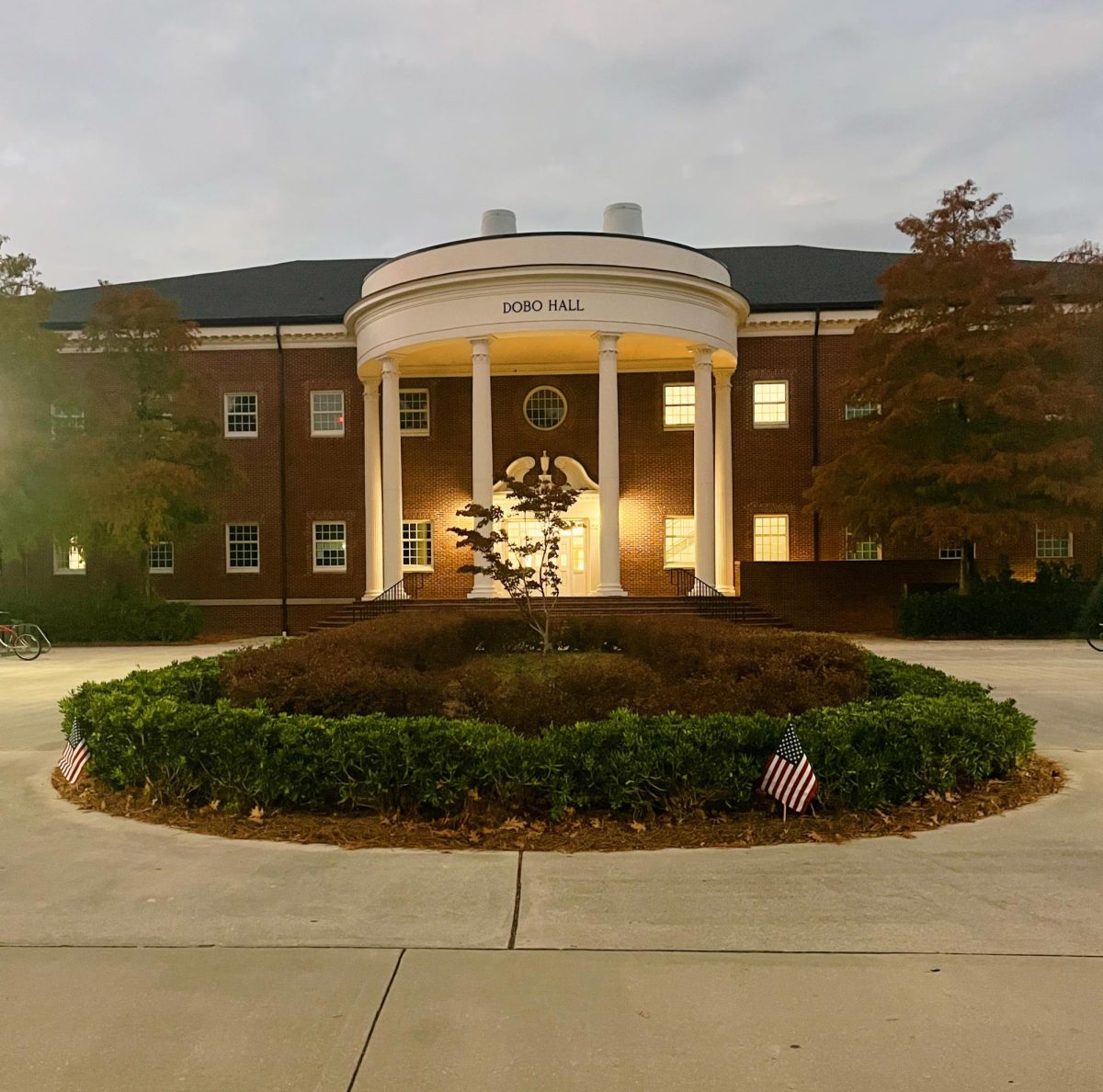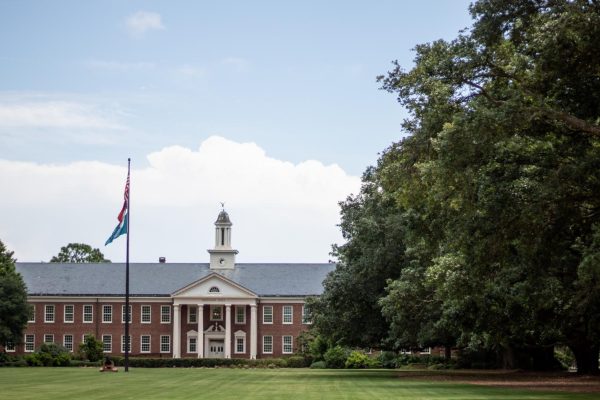
A public records request submitted by The Seahawk has yielded the locations, dates and times of all documented violent crimes that took place on UNCW’s campus in the 2022 calendar year. The initial numbers were released by the University Police Department (UPD) in early October as part of their annual security report, which details all crimes that take place on UNCW’s campus each calendar year. The document is developed by the Title IX and Clery Compliance office at UNCW following guidelines outlined in the Jeanne Clery Disclosure of Campus Security Policy and Campus Crime Statistics Act, or the Clery Act. The act sets forth requirements for collegiate security reports; the law was signed to provide students and their families with transparency as to campus crime data.
An interactive violent crime map was also developed and is provided on this page. Any icon can be selected for more information about its official classification, as well as when and where it took place.
Incidents provided in the records response included an involuntary manslaughter and three reported cases of on-campus rape; a fourth was listed as “off campus.” Other sex offenses included sexual harassment and indecent exposure. In Nov. 2022, there was a case involving pornography over Zoom. Three offenses did not have an exact location and were not included in the map.
Major Takeaways:
Cases that occurred in residential areas composed 55% (18/33) of the total reported violent crimes on campus.
Cases classified as either dating or domestic violence composed 51.5% (17/33) of the total reported violent crimes on campus.
Cases labeled as harassment or sexual harassment – both in person and online – composed just under 40% (13/33) of the total reported violent crimes on campus.
Cases labeled as “assault,” such as sexual assault, aggravated assault and simple assault, composed 33.3% (11/33) of the total reported violent crimes on campus.
Violent on-campus crimes executed using technology, such as the Zoom sex act, cyber stalking and harassment through digital or electronic communications constituted 33.3% of the total.
The fourth case of rape, listed as having taken place in a non-campus property, was not included in the calculation of this data.
Stalking, which comes up in four of the 33 incidents in the records release, cannot always be prosecuted by UPD due to misunderstandings of U.S. and N.C. policy.
“A lot of the stalkings that are reported under the ASR are not enforceable under state law,” said Chris Bertram, Assistant Chief of UPD. “The federal definition is, if you see someone several times and it makes you uncomfortable, you can report it as a stalking. Under state law, the person has to be notified that the attention is unwanted. Sometimes, the alleged offender has absolutely no idea that the attention is unwanted. Once they’re [the alleged offender] notified, if they do it again, then it’s a violation of the law.”
The victim does not have to be the one to make the notification to the perpetrator. Evidence is also not required when reporting any crime – not just in instances of stalking. The amount of information provided, however, can potentially affect the likelihood of an incident being resolved; this also applies to nonviolent cases, such as bicycle theft.
The Daily Crime Log, regularly updated on UPD’s site, only includes reports of incidents officially considered a “crime;” the Clery stalkings that are not considered a crime will therefore not be included due to state law. Crime reports must be uploaded to the log within two days of UPD being notified.
“There’s a list of crimes that are reportable under Clery law, and that’s what’s in the annual security report. The Daily Crime Log is all crime,” Bertram said. Alleged perpetrators do not have to be convicted of an offense for their case to be included in the annual report.
Bertram, who has worked for UNCW for 12 years, also mentioned the existence of cyclical patterns in nonviolent campus crime; many of the cases dealing with alcohol, drug use or bicycle theft tend to be during the first and last two weeks of a given semester.
“Where sexual assaults are involved, I can only think of one in twelve years that involved someone that was not known to the victim,” Bertram explained. “In that situation, it was like the friend of a friend of a friend; they were at a party together, but they didn’t really know them. We have never had the ‘stranger rape’ kind-of thing.”
An article published by Port City Daily (PCD) in October included information discussed at the UNCW Board of Trustees meeting on Oct. 13. The analysis reported cases of on-campus rape have doubled in the last two years, also citing a rise from 14 to 16 from the 2021 calendar year to the 2022 calendar year; through the use of the released public records, several of these cases were determined to be specifically classified as sexual harassment and sexual assault; the same details were not included in the officially published security report.
A discrepancy was noted between the number of cases labeled as dating violence and domestic violence in the security report and the public records released to The Seahawk. The former listed nine cases involving dating violence and one case involving domestic violence- 10 in total. The latter listed 16 cases involving dating violence and one case involving domestic violence- 17 in total.
According to the PCD article, trustees were told that the data provided did not completely reflect arrests made or cases investigated by UPD; the office of Collaboration for Assault Response and Education (CARE), the Abrons Student Health Center and counseling services at UNCW are exempt from reporting to the university’s Title IX and Clery Compliance office.
In the article, one trustee was noted to have asked about prevention efforts. Interim Director of the Title IX and Clery Compliance office, Dr. Leigh Fickling, explained that the effort, primarily focused on the educational aspects of crime prevention, was spread across numerous departments at UNCW. The effort includes one mandatory training for students, being an online orientation module required for incoming freshmen on sexual assault and substance use. Other resources include self-defense classes conducted by UPD, an effective bystander program, dating app support, coaching for healthy relationships and guidance in consent and respect.
“I think the complaints are getting to us,” Fickling said in an interview with The Seahawk. “I think that that’s a positive thing. We want students to be able to say something if something happens to them. Even if they decide that they don’t want to take action with it; it’s really important from an institutional perspective that we provide them with support services and resources.”
The Title IX investigation for filed incident reports takes between 30 and 60 days. Should the case move forward towards a hearing, the meeting will take place approximately 30 days later. The office utilizes an external adjudicator model and concludes the hearing with a recommendation for either the pursuit of a sanction or not this decision is made same-day.
The new director for the Title IX and Clery Compliance office will begin work on Jan. 2, 2024. Their name has not yet been publicly released.
“I feel that people are reporting things and allowing us the opportunity to provide support services as needed,” Fickling said. “I read articles about different institutions and how there’s this secret culture where people don’t report [because] they feel like nothing will be done about it. I just don’t think that that’s true at UNC-Wilmington; I think that speaks highly of the Seahawk community that we have.”
The 2022 Annual Security Report and Daily Crime Log can both be accessed on UPD’s website at https://uncw.edu/seahawk-life/services/police/.



